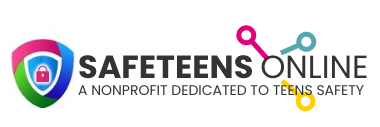To prevent Coronavirus spread most US schools and Universities shifted to virtual classes. This is the time criminals are capitalizing coronavirus scare and sending people emails to prey on people’s fears and open attachments. At Safeteens Online we would like to bring some of the best practices to safeguard Teens privacy and security.
Best Practices for Home Computer Security
Defend yourself! Keep your identity secure/prevent identity theft.
When working at home on your computer, follow these best security practices, derived from the National Security Agency (NSA) datasheet “Best Practices for Keeping Your Home Network Secure.”
• Turn on password feature, create separate accounts for each user, and have them
create their own passwords using a strong password creation method
• Install all system security updates, patches, and keep your defenses up-to-date.
• Keep antivirus software up-to-date
• Regularly scan files for viruses
• Install spyware protection software
• Turn on firewall protection
• Require confirmation before installing mobile code
• Change default logon ID and passwords for operating system and applications
• Regularly back up and securely store your files
• Beware of sudden flashing pop-ups that warn that your computer is infected with a
virus; this is a malicious code attack!
